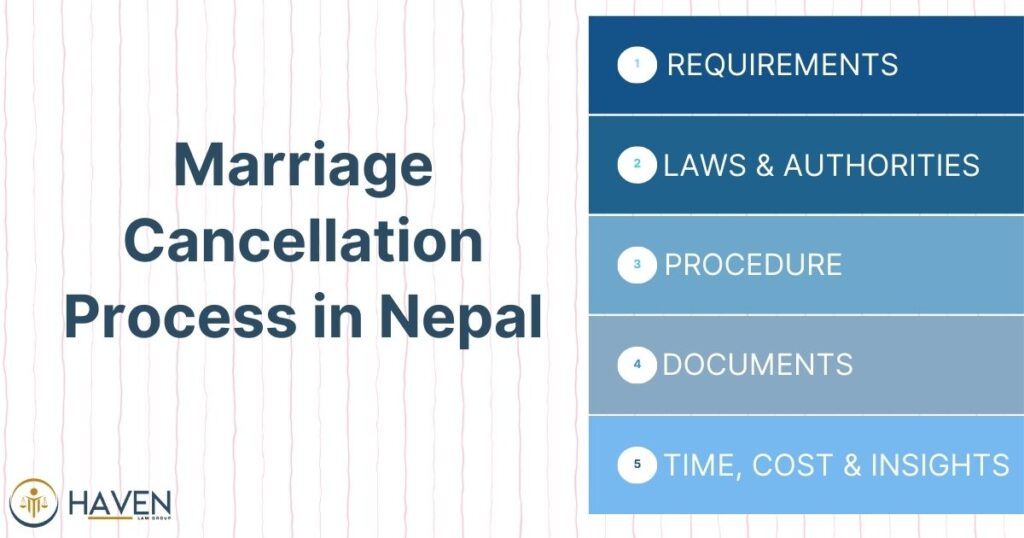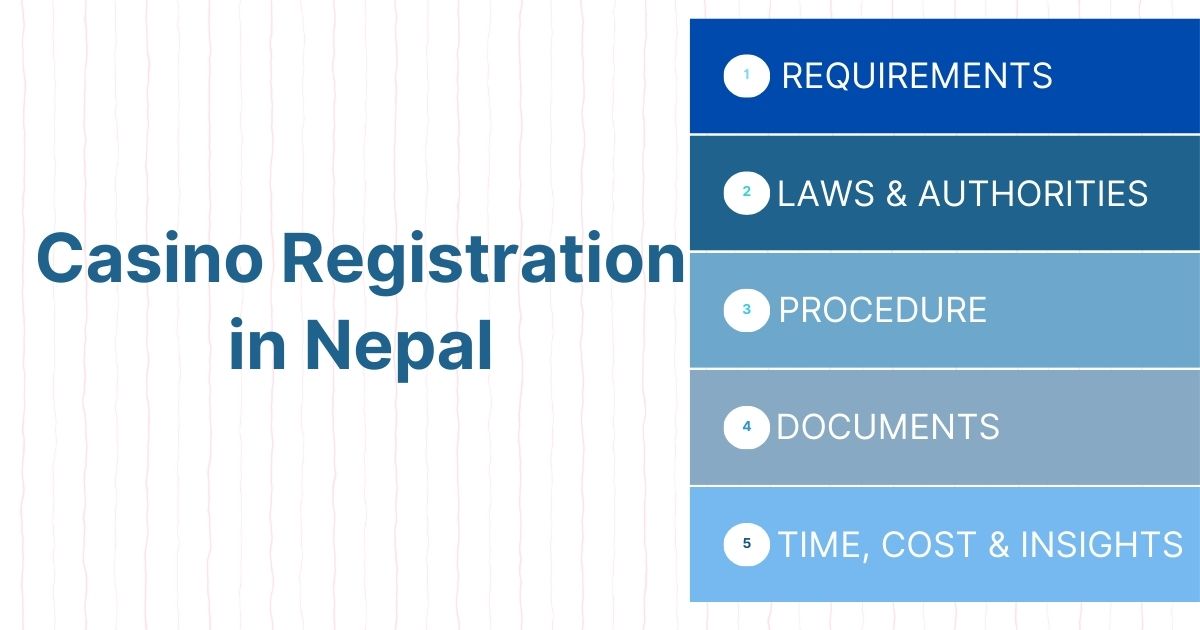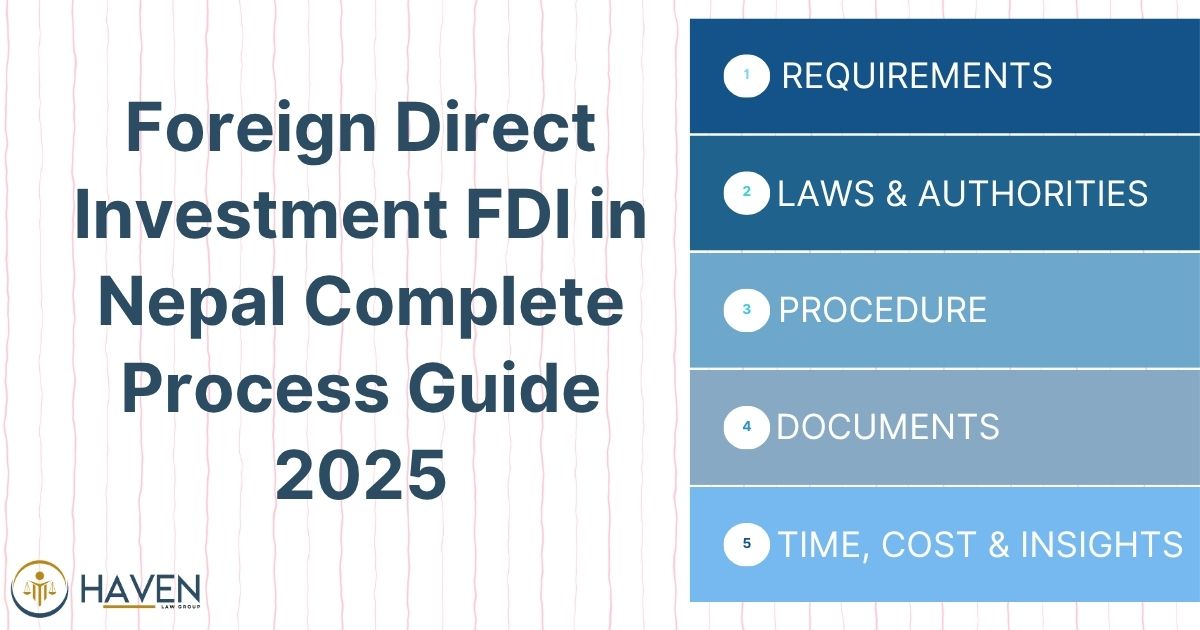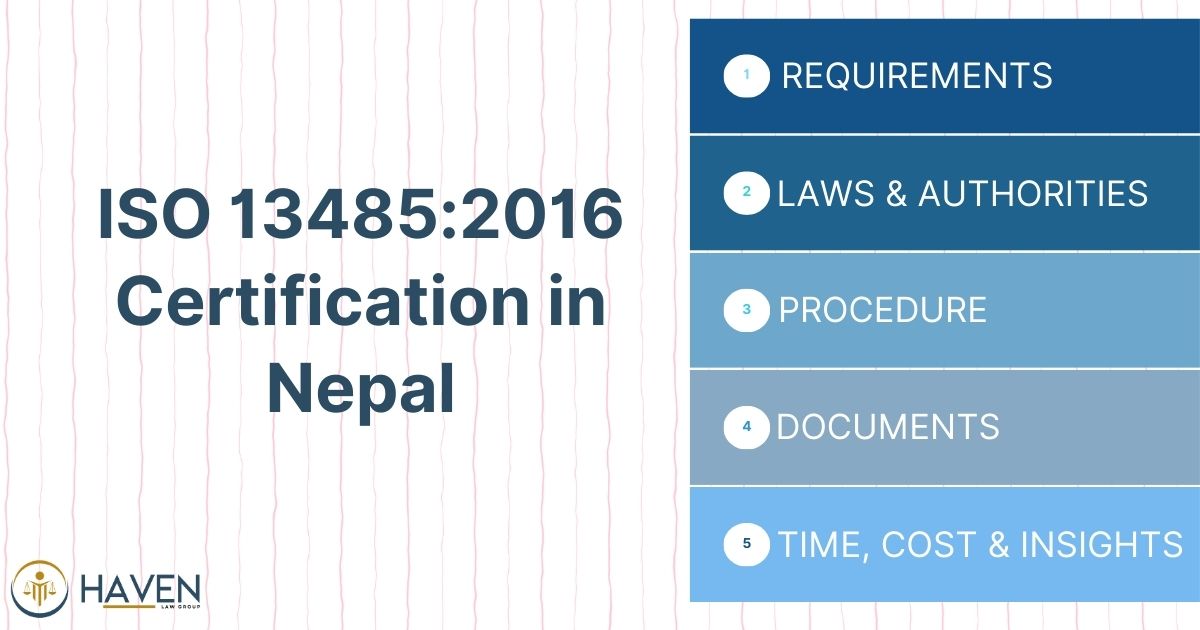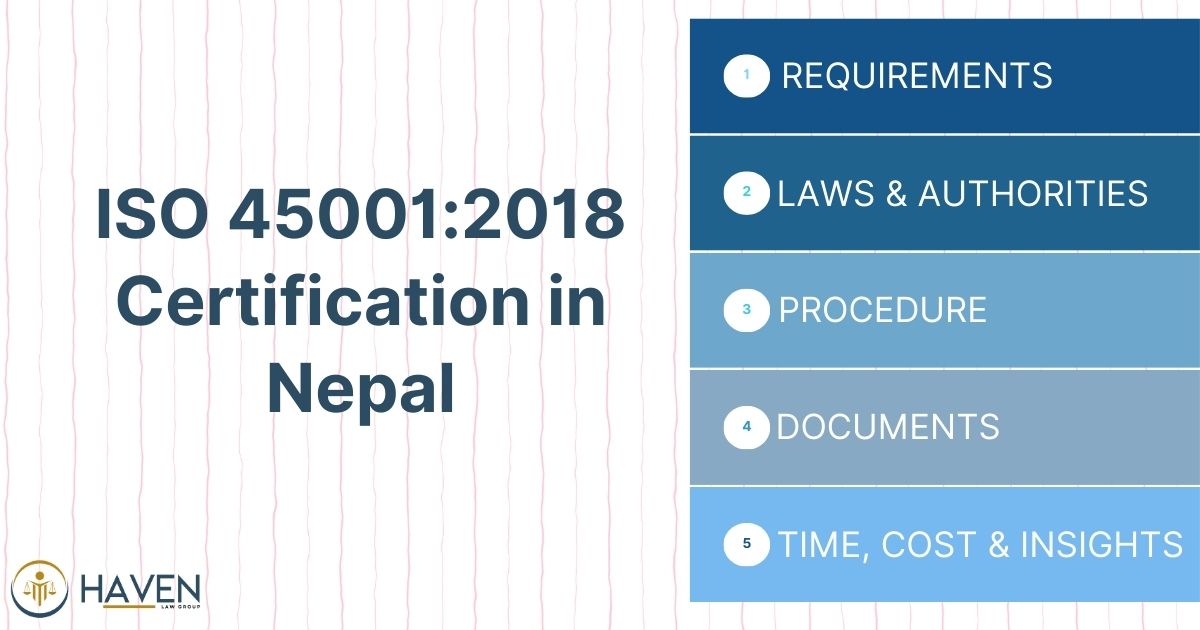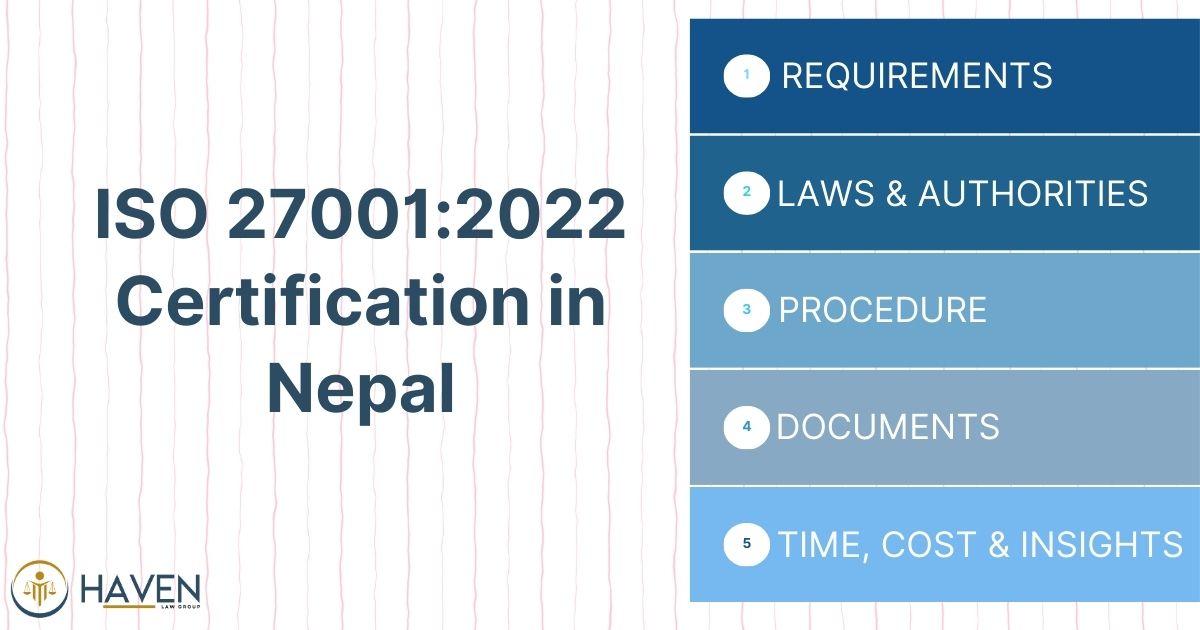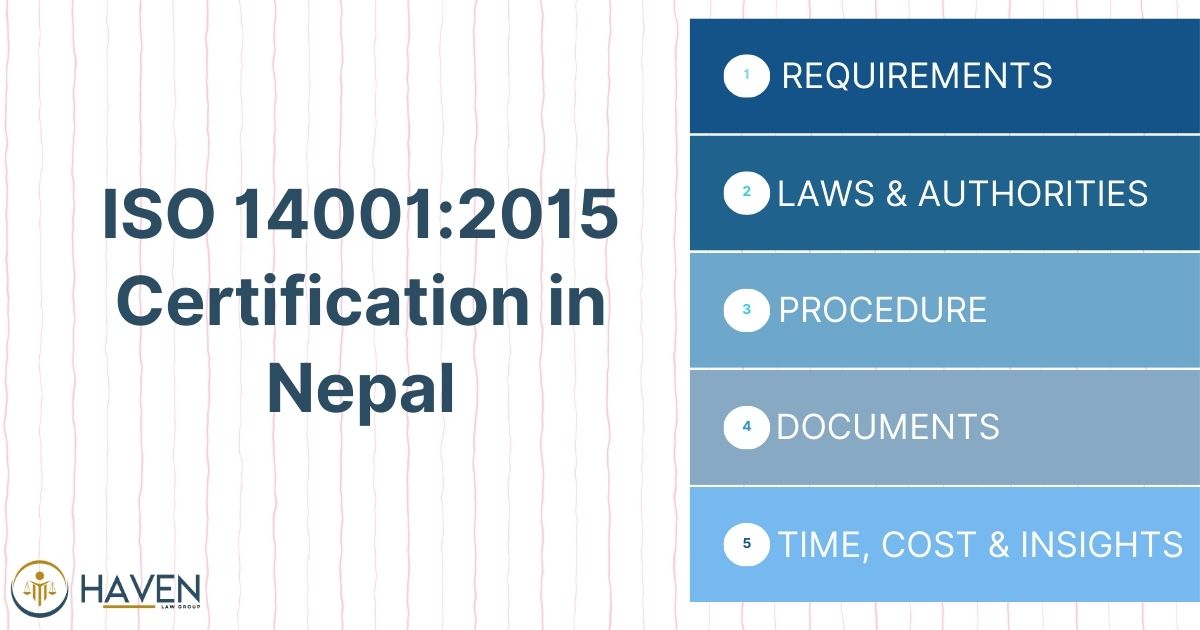Can a marriage be canceled in Nepal?
In Nepal, marriages can be canceled under specific circumstances as outlined in the National Civil Code 2017. The law recognizes marriage cancellation, also known as annulment, as a legal process distinct from divorce. Marriage cancellation effectively declares the marriage null and void, as if it never occurred.
The grounds for cancellation include fraud, coercion, lack of consent, underage marriage, and certain prohibited relationships. It’s essential to note that not all marriages qualify for cancellation, and the process requires legal scrutiny. The court carefully examines each case to determine if it meets the criteria for annulment as per Nepali law.
What is the legal process for marriage cancellation?
The legal process for marriage cancellation in Nepal involves several steps:
- File a petition: The aggrieved party must file a petition in the district court where either spouse resides.
- Present evidence: Provide documentation and witnesses to support the grounds for cancellation.
- Court hearing: Attend court hearings where both parties can present their case.
- Court investigation: The court may conduct its own investigation into the matter.
- Final decision: The judge issues a verdict based on the evidence and legal grounds presented.
- Appeal process: If dissatisfied, either party can appeal the decision in a higher court.
The process requires adherence to legal procedures and may take several months to complete, depending on the complexity of the case and court backlog.
Are annulments different from divorce in Nepal?
Annulments and divorces are distinct legal processes in Nepal. An annulment, or marriage cancellation, declares the marriage invalid from its inception, as if it never legally existed. This differs from divorce, which terminates a valid marriage. The key differences include:
- Legal status: Annulment treats the marriage as void, while divorce ends a valid marriage.
- Grounds: Annulments have specific grounds related to the marriage’s validity, while divorces can be granted for various reasons.
- Property division: In annulments, property division may be simpler as the marriage is considered non-existent.
- Alimony: Alimony is generally not awarded in annulments but may be in divorces.
- Legal effects: After an annulment, parties revert to their pre-marriage legal status, while divorced individuals are considered formerly married.
Understanding these differences is crucial when deciding which legal route to pursue in Nepal.
How long does it take to cancel a marriage?
The duration of the marriage cancellation process in Nepal can vary significantly depending on several factors:
- Complexity of the case
- Court workload and backlog
- Cooperation between parties
- Availability of evidence and witnesses
- Potential appeals
On average, a straightforward marriage cancellation case might take 3-6 months to resolve. However, complex cases or those involving disputes can extend to a year or more. The timeline may also be affected by:
- Court procedures and scheduling
- Legal representation efficiency
- Required investigations
- Potential mediation attempts
It’s advisable to consult with a legal professional for a more accurate estimate based on the specific circumstances of the case. Patience and thorough preparation can help expedite the process.
What documents are needed for marriage cancellation?
To initiate a marriage cancellation in Nepal, several documents are typically required:
- Marriage certificate
- Citizenship certificates of both parties
- Birth certificates (especially in cases of underage marriage)
- Evidence supporting grounds for cancellation (e.g., medical reports, witness statements)
- Police reports (if applicable, in cases of fraud or coercion)
- Court petition for marriage cancellation
- Affidavits from relevant parties
- Proof of residency in the district where the petition is filed
- Any prenuptial agreements (if applicable)
- Financial documents (if relevant to the case)
- Photographs or other physical evidence supporting the claim
It’s essential to consult with a legal professional to ensure all necessary documents are prepared and submitted correctly, as requirements may vary based on the specific grounds for cancellation.
Can mutual agreement lead to marriage cancellation?
In Nepal, mutual agreement alone is not sufficient grounds for marriage cancellation. Unlike divorce, which can be granted based on mutual consent, marriage cancellation requires specific legal grounds as outlined in the National Civil Code 2017. However, if both parties agree that the marriage meets one of the legal criteria for cancellation, the process may be smoother and faster. Possible scenarios include:
- Both parties acknowledging a lack of consent at the time of marriage
- Agreement on the existence of fraud or misrepresentation
- Mutual recognition of a prohibited relationship
Even with mutual agreement, the court must still verify that the marriage meets the legal criteria for cancellation. The judge will examine the evidence and may conduct an independent investigation before granting the annulment. While mutual agreement can facilitate the process, it does not guarantee automatic cancellation of the marriage.
Is court approval mandatory for annulments?
Court approval is mandatory for marriage annulments in Nepal. The legal system requires judicial oversight to ensure that the grounds for cancellation are valid and that the process adheres to the law. The court’s role includes:
- Verifying the legitimacy of the cancellation grounds
- Protecting the rights of both parties
- Ensuring compliance with legal procedures
- Investigating claims and evidence
- Issuing a legally binding decision
The requirement for court approval serves several purposes:
- Preventing fraudulent or baseless cancellations
- Maintaining the integrity of the marriage institution
- Providing a formal record of the marriage’s nullification
- Offering legal protection to both parties involved
Without court approval, a marriage cancellation is not legally recognized in Nepal, potentially leading to complications in future legal matters, property rights, and personal status.
Are there legal grounds for marriage cancellation in Nepal?
Nepal’s National Civil Code 2017 outlines specific legal grounds for marriage cancellation:
- Lack of consent: Marriage performed without the free consent of either party.
- Underage marriage: When one or both parties were below the legal age of marriage (20 years).
- Bigamy: If either party was already married at the time of the wedding.
- Prohibited relationships: Marriage between close relatives or within prohibited degrees of kinship.
- Impotence: If one party was impotent at the time of marriage and the condition was unknown to the other party.
- Fraud or misrepresentation: If critical information was concealed or falsified before the marriage.
- Mental incapacity: If either party was of unsound mind at the time of marriage.
- Forced marriage: Marriages conducted under duress or coercion.
These grounds must be proven in court with substantial evidence for the marriage to be canceled. The specific circumstances of each case are carefully examined by the court to determine if they meet the legal criteria for annulment.
Are lawyers required for annulments?
While it’s not legally mandatory to have a lawyer for marriage annulments in Nepal, it’s highly recommended due to the complexity of the process. Lawyers can provide several benefits:
- Legal expertise: Understanding of Nepali marriage laws and court procedures.
- Case preparation: Gathering and organizing necessary documents and evidence.
- Court representation: Presenting the case effectively before the judge.
- Negotiation skills: Handling discussions with the opposing party or their legal representation.
- Procedural guidance: Navigating the court system and filing requirements.
- Legal strategy: Developing the most effective approach for the specific case.
- Protection of rights: Ensuring the client’s interests are safeguarded throughout the process.
- Time-saving: Managing paperwork and court appearances efficiently.
Self-representation is possible, but it can be challenging, especially in complex cases. The involvement of a lawyer can significantly improve the chances of a successful and timely resolution of the marriage cancellation process.
Can marriages be canceled due to fraud?
Fraud is a valid ground for marriage cancellation in Nepal under the National Civil Code 2017. Marriages can be annulled if one party can prove that the other engaged in fraudulent activities or misrepresentation before or during the marriage. Examples of fraud that may lead to cancellation include:
- Concealing a previous marriage
- Lying about one’s identity, age, or social status
- Misrepresenting one’s financial situation
- Hiding significant health issues or disabilities
- Falsifying educational or professional qualifications
- Concealing criminal history or legal problems
To successfully cancel a marriage on grounds of fraud:
- The fraud must be material to the marriage
- It must have occurred before or at the time of marriage
- The aggrieved party must have been unaware of the fraud at the time of marriage
- The fraud must be proven with substantial evidence
The court will carefully examine the nature and impact of the alleged fraud before deciding on the cancellation.
Is cancellation possible after several years?
In Nepal, the possibility of marriage cancellation after several years depends on various factors:
- Legal time limits: Some grounds for cancellation have specific time limits within which the petition must be filed.
- Nature of the grounds: Certain grounds, like fraud or lack of consent, may be considered regardless of the time elapsed.
- Discovery of facts: The time limit may start from when the aggrieved party discovers the grounds for cancellation.
- Court discretion: Judges may consider the length of the marriage and its implications when deciding on cancellation.
- Evidence availability: The passage of time may affect the availability and reliability of evidence.
- Children and property: Long-term marriages with children or significant shared assets may complicate the cancellation process.
While cancellation after several years is possible, it often faces greater scrutiny. The court will carefully evaluate:
- The reason for the delay in seeking cancellation
- The impact of cancellation on both parties and any children
- The overall fairness and justice of granting cancellation after a significant period
Each case is evaluated on its merits, considering all relevant circumstances.
What are the consequences of marriage cancellation?
Marriage cancellation in Nepal carries several legal and personal consequences:
- Legal status: The marriage is considered null and void from its inception.
- Property division: Assets acquired during the marriage may be divided or returned to original owners.
- Alimony: Generally not awarded in annulments, unlike divorces.
- Child custody: If children are involved, custody arrangements must be determined.
- Child support: Obligations for child support remain, despite the marriage cancellation.
- Name change: Parties may revert to their pre-marriage names if desired.
- Inheritance rights: Rights to inherit from the ex-spouse are typically terminated.
- Social implications: Potential stigma or social consequences in conservative communities.
- Financial impacts: Possible loss of shared benefits, insurance coverage, or financial support.
- Legal record: The cancellation becomes part of public record.
- Future marriages: Parties are free to remarry without waiting periods.
- Citizenship status: May affect citizenship status if it was obtained through marriage.
Understanding these consequences is crucial for both parties when considering marriage cancellation. It’s advisable to consult with legal and financial professionals to fully comprehend the implications in individual cases.
FAQs
1. Is fraud valid grounds?
Yes, fraud is a valid ground for marriage cancellation in Nepal. The National Civil Code 2017 recognizes fraud or misrepresentation as a basis for annulment. The fraud must be material to the marriage, occurring before or at the time of marriage, and unknown to the aggrieved party at the time. Substantial evidence is required to prove the fraudulent activity in court.
2. Are fees refundable?
Generally, court fees and legal expenses associated with marriage cancellation in Nepal are not refundable. These fees are considered administrative costs for processing the case. However, in some instances, the court may order one party to cover the other’s legal expenses if fraud or misconduct is proven. It’s advisable to discuss fee structures and potential outcomes with a legal professional before initiating the cancellation process.
3. Can cancellation be contested?
Yes, marriage cancellation can be contested in Nepal. The respondent (the party not filing for cancellation) has the right to challenge the grounds presented or provide evidence against the cancellation. Contested cases often take longer to resolve and may require additional court hearings. Both parties have the opportunity to present their arguments and evidence before the court makes a final decision.
4. Are annulments final?
Annulments granted by a competent court in Nepal are generally final and legally binding. However, like other court decisions, they can be appealed within a specified timeframe if either party believes there were legal errors or new evidence emerges. The appeal would be heard by a higher court, which could potentially overturn or modify the original decision. Once the appeal period has passed or all appeals are exhausted, the annulment becomes final and irreversible.
5. Is notarization mandatory?
Notarization is not universally mandatory for all documents in the marriage cancellation process in Nepal. However, certain affidavits or sworn statements may require notarization to be considered valid by the court. The specific requirements can vary depending on the nature of the document and the court’s procedures. It’s advisable to consult with a legal professional or inquire at the court to determine which documents, if any, require notarization in your specific case.
What is the process for marriage cancellation in Nepal?
Marriage cancellation involves filing a petition in district court, providing evidence, and obtaining a court order. The process requires legal representation and can vary based on circumstances.
Is marriage cancellation the same as divorce in Nepal?
No, marriage cancellation differs from divorce. Cancellation declares a marriage void from the beginning, while divorce ends a valid marriage.
Who can file for marriage cancellation in Nepal?
Either spouse can file for marriage cancellation. In some cases, parents or guardians may also petition if the marriage involved a minor.
How long does the marriage cancellation process take in Nepal?
The duration varies depending on case complexity and court backlog. It typically takes several months to over a year to complete the process.
What are the legal grounds for marriage cancellation in Nepal?
Legal grounds include forced marriage, underage marriage, bigamy, close blood relation, mental incapacity, and fraud or misrepresentation about crucial facts before marriage.
What documents are required for marriage cancellation in Nepal?
Required documents include marriage certificate, citizenship certificates, evidence supporting cancellation grounds, and any relevant court orders or legal notices.

